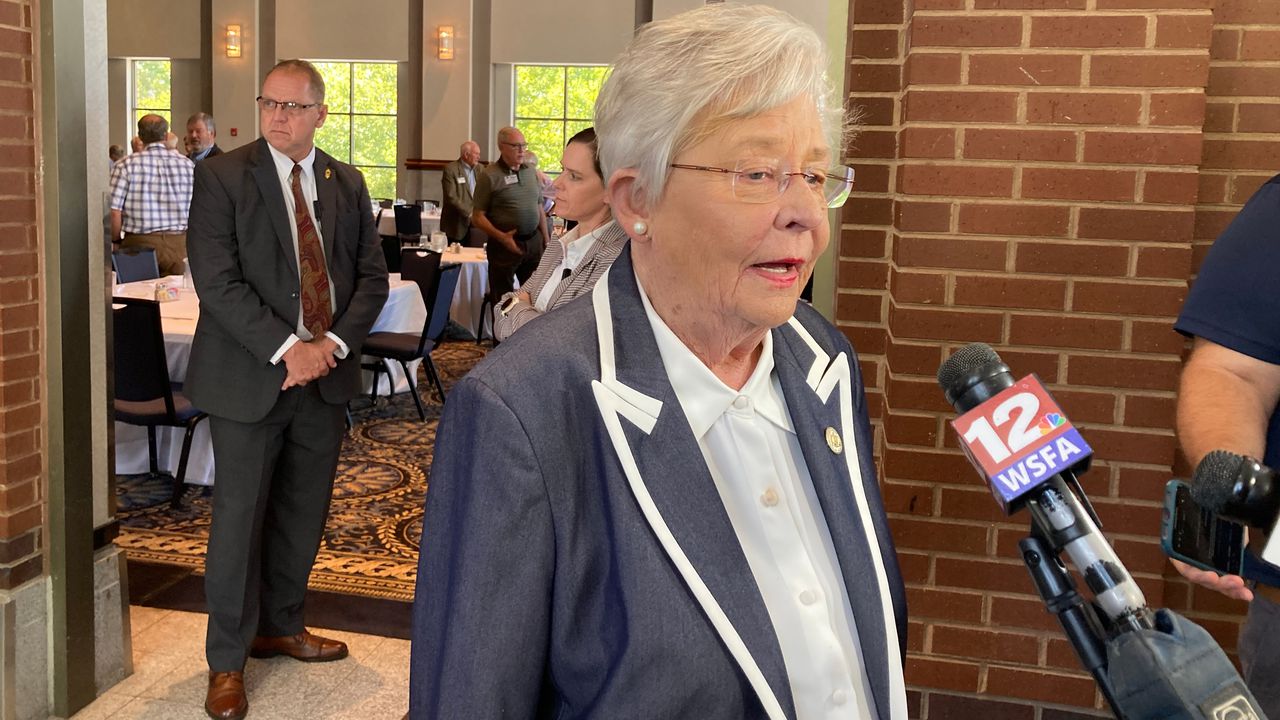Gov. Ivey requests changes to Alabama libraries; state money âcontingentâ on new policies
Gov. Kay Ivey responded Wednesday morning to Alabama Public Library Service (APLS) director Nancy Pack’s letter about concerns over children’s exposure to “inappropriate content” with proposed amendments to the APLS rules.
Ivey said the APLS should, at a minimum:
- “Make state aid for local libraries contingent on the adoption of sensible policies to facilitate greater parental supervision of their children.” Ivey said the $6.6 million the legislature appropriates to the APLS to distribute to local public libraries is contingent on “submission of written policies covering physical location (and relocation) of material deemed inappropriate for children or youth.” Library staff should seek approval for recommended or displayed materials. Ivey said this will “create a welcoming library environment.”
- “Require all expenditures of public funds to the American Library Association be approved by the relevant governing authority in an open, public meeting.” Ivey said she’s “entirely sympathetic to calls to disaffiliate our Alabama libraries from the ALA.” She said there should be a balance between the advantages the ALA provides and what are the group’s “clear shortcomings.”
- “Reaffirm local libraries’ ability to respond to parental concerns about sexually explicit or other inappropriate materials.” Ivey said the APLS “should amend its rules to clarify that exercising discretion about the location or promotion of age-inappropriate library materials does not constitute a ‘denial of service’ on the basis of ‘age’ in violation of existing Library Service rules.”
Ivey said before the board amends its rules, the APLS should send a memo to local libraries “clarifying their ability to respond to parental concerns about sexually explicit or otherwise inappropriate material.” Ivey said, “limiting children’s access to inappropriate content is not impermissible ‘censorship.’”
Ivey begins the statement by thanking Pack for providing information about library rules and emphasizing “the good work done by Alabama libraries…to promote literacy, help with homework and offer resources to parents and other members of the public.”
“After reading your submission, however I still lack confidence that our libraries are most effectively fulfilling their mission,” Ivey said. “In my previous letter to you, I described the core problem as the exposure of children and youth to inappropriate materials without adequate means of parental supervision. Unfortunately, your response does not persuade me that Alabama libraries have policies in place to strike the right balance in responding to this problem.”
Ivey said the nearly 30 local library policies Pack submitted “generally fail to support parents hoping to protect their children from inappropriate content.”
In the statement, Ivey said children may view library titles uninhibited and that only one policy “includes a process that could result in a ‘change in location or reading level’ of a challenged book. Indeed, one library policy apparently prohibits library staff even from labeling books based on age level.”
“To be clear, I agree that parents bear ultimate responsibility for supervising their children’s reading material,” Ivy continues in the statement. “But the question here goes beyond that: What can libraries do to support parents in helping their children avoid harmful materials?” She said “invoking parental responsibility” alone “sends the wrong message, that libraries are not a place for families or children” and children are allowed to “wander freely in a children’s section.”
Ivey said she had “serious misgivings about the American Library Association (ALA) and its influence over Alabama libraries.” She said the “Library Bill of Rights” doesn’t require minors’ library records to be confidential. Still, Pack didn’t “offer any further defense of the ALA Bill of Rights.” Ivey said the ALA wants children to have access to “all library content, no questions asked.”
Ivey ended the statement by saying she doesn’t believe books should be “‘banned’ from libraries based on unpopular opinions or content. Libraries should be a place for exploring a wide variety of viewpoints and ideas. At the same time, however, libraries must not be a place to expose children to inappropriate content without the knowledge and consent of their parents. Libraries should listen to parents when it comes to what content is openly available in children’s sections of libraries.”
AL.com sent the statement to the APLS for comment. The group had not responded by the time this story was published.
Related Stories:
